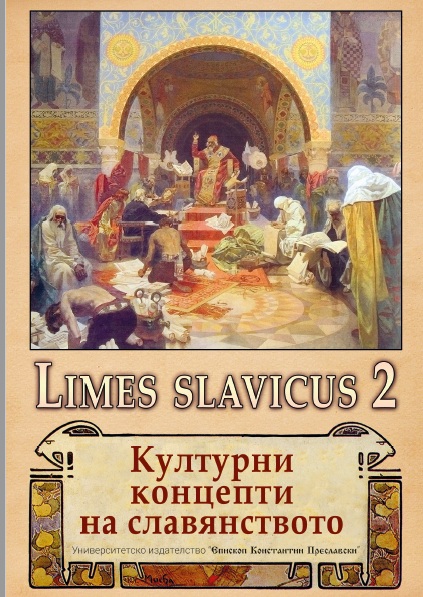Od poézie a praktickej humanistiky k politickej utópii a rusofilstvu (Slováci a slovanská idea: Ján Kollár, Pavel Jozef Šafárik a Ľudovít Štúr)
From poetry and practical humanities to political utopia (The Slovaks and the Idea of Slavic unity: Ján Kollár, Pavel Jozef Šafárik and Ľudovít Štúr)
Author(s): Peter KášaSubject(s): Language and Literature Studies, Philology
Published by: Шуменски университет »Епископ Константин Преславски«
Keywords: Slovak; Slavic community; nation; literature; ideology
Summary/Abstract: This paper analyzes basic ideas concerning a formation of Slovak national identity in early 19th century. The main emphasis is on the analysis of the ideas and concepts of three Slovak major intellectuals who, in various ways, have presented Slovak ethnicity as both symbolic and real community, that is as a modern nation. These ideas and concepts have manifested themselves in their literary and aesthetics texts which, however, have also presented a broader context of the formation of Slovak national identity. Slovak national unity has also been formed through art, science and ideology and it was based on the Slavic- Non-Slavic binary opposition principle, that is on the opposition „we versus them.“ Three Slovak major intellectuals of the period, that is Jan Kollar (1793 - 1852), P. J. Safarik (1795 - 1861) and Eudovh Stur (1815 - 1856) tried to achieve a transformation of the image of the nation from the imaginary to the real nation. Each of these intellectuals started their public activities in different way: Jan Kollar as a poet and priest, P. J.Safarik as a human sciences scholar, and E. Stur as a politician. Each of them, however, has tried to define a Slovak collective identity as part of a broader Slavic myth which they understood, either explicitly or covertly, to be in opposition with non-Slavic „reality.“
Journal: Limes Slavicus
- Issue Year: 2017
- Issue No: 2
- Page Range: 201-209
- Page Count: 9
- Language: Slovak

